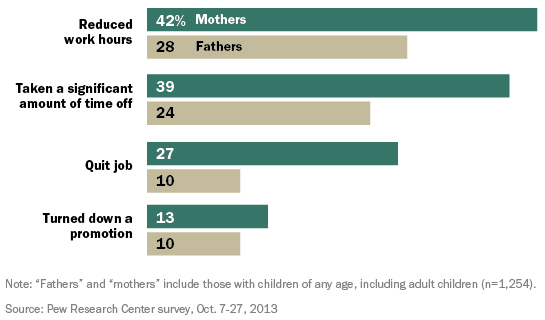I was going through the results of a Pew Research Center Survey – 10 Findings about Women in the Workplace and the results actually got me thinking: Has the Gender Diversity battle been focusing too much on what companies should be doing and not enough on what should be expected from the actual families involved? Isn’t it fair to assume that women should be meeting companies have way to achieve gender balance in the workplace? I say yes and with that in mind, I believe there are 3 very reasonable expectations that any employer can expect from women in the workforce.
What Companies Should Expect From Individuals
Anyone who drives gender balance in the workplace has written about all the actions that companies should be taking to make the workplace more welcoming to women. However, in Asian societies there is an extremely strong element of cultural challenges women have to overcome. So as employers, what actions can we reasonably expect female employees and subsequently their families to take to meet us half way?
1. Returning on Time After Maternity Leave
Sounds like a pretty basic concept but the number of people I know who’ve managed to twist their bosses’ arms into combining maternity leave with annual, casual, medical and a UFO has taken over the world leaves is pretty crazy. The whole reason why maternity leaves are defined by law are because it’s a “reasonable” amount of time for a baby to stabilize and the mother to recover. It’s damaging for any team when a key player is missing beyond a reasonable amount of time and after all, everyone has a role to play.
2. Dividing the Responsibilities of Children
Why is it that nearly the entire time, mothers are expected to take children to the doctor, go to school recitals or stay at home when their sick? Take a look at this graph from the Pew study which shows career Interruptions due to family for mothers vs fathers:

Some may argue it’s the guy’s job to be the primary bread winner. But if that’s the case then gender diversity or equality automatically becomes a comprised concept. Fathers should be expected to play as an important role with the children as the mothers are.
3. Act like a Confident Team Member, not the Weaker Gender
In frontier markets, where political and security situations are questionable it’s common for women to be sent home early or get a day off because the situation in a city seems unstable. This often sets a precedence for “letting women off easy”. But if women want to be treated equally, they need to play the same game too. I’m all for flexible workplaces so if they need to go home early, then work can and should be continued from home. It’s about the deliverables, not the location.
Just today, CNN was reporting on Japan’s Prime Minister Shino Abe and his wife Akie struggle for increasing “Womenomics”. Their economy is stagnant, fertility rates low and as a highly advanced country in Asia they’re still struggling with laws and policies to encourage the gender balance. Akie Abe has set a goal of having 30% women in leadership roles by the 2020 Olympics in Tokyo. But how will they achieve that when 15 hour workdays are common and women feel they need to sacrifice their careers to have a family? We’ll have to watch Japan in the upcoming years to see what they do.
Sign up to the blog to receive more on the challenges and solutions to operating in the dynamic world we live in. And if you have any other points (or arguments) to the ones above regarding gender balance, please comment below!
Photo Credit: ELEMENT AV via Compfight cc



